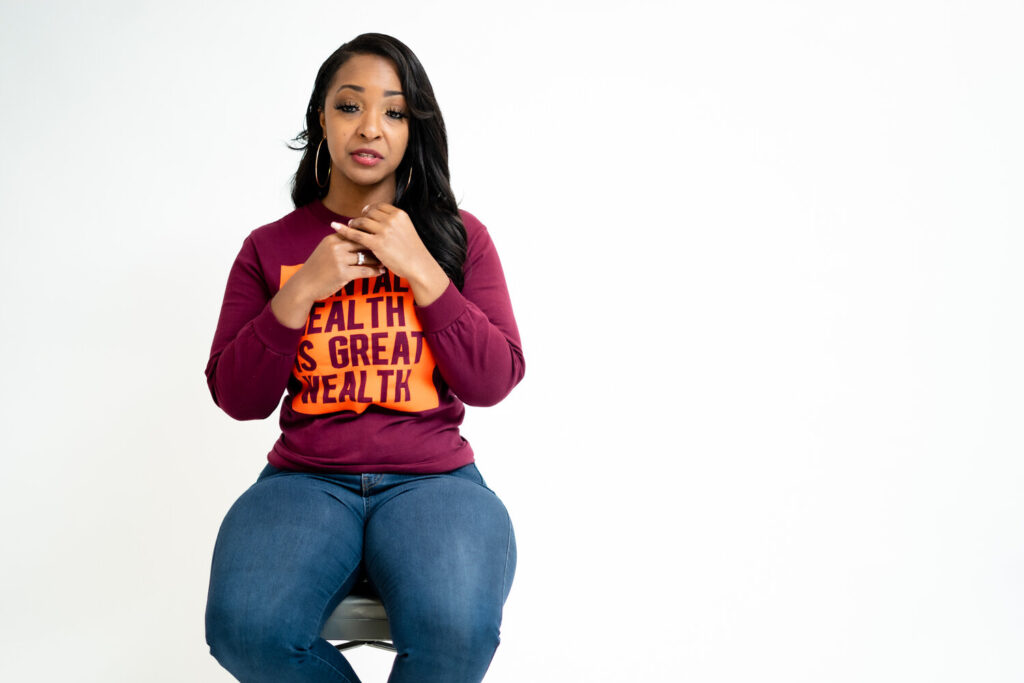
So the first time that I became aware of mental illness was after I saw a loved one die, I witnessed her taking her last breaths and that was very traumatic for me.
I started out having what I know now is referred to as death trauma. So I had like a fear of death for many, many, many years after that, watching someone that I knew and loved take her last breathes and, you know, gasping for air. And just the way that, that all looked was very traumatic for me. I did not know what was happening until my grandmother had to look at me and tell me was she’s dying. And it was like, Oh my God. And so after that is when I began having panic attacks because I started thinking I was going to die all the time, so I could be driving down the freeway and I would have to pull over. I didn’t know what it was at the time. I just thought, you know, mentally that I was just going through something, but I didn’t realize it was a mental illness until one day I was at work and I started having a panic attack.
My heart was racing. My throat was closing up. I couldn’t breathe. My left side started going numb. I thought I was having a heart attack. So I jumped in my car, drove myself to the emergency room and they did all the checks. And that’s when they let me know that I was having a panic attack. So this was when I found out what it was. I was maybe 25, 26, so I wasn’t an adult.
50% of all lifetime mental illness begins by age 14, and 75% by age 24
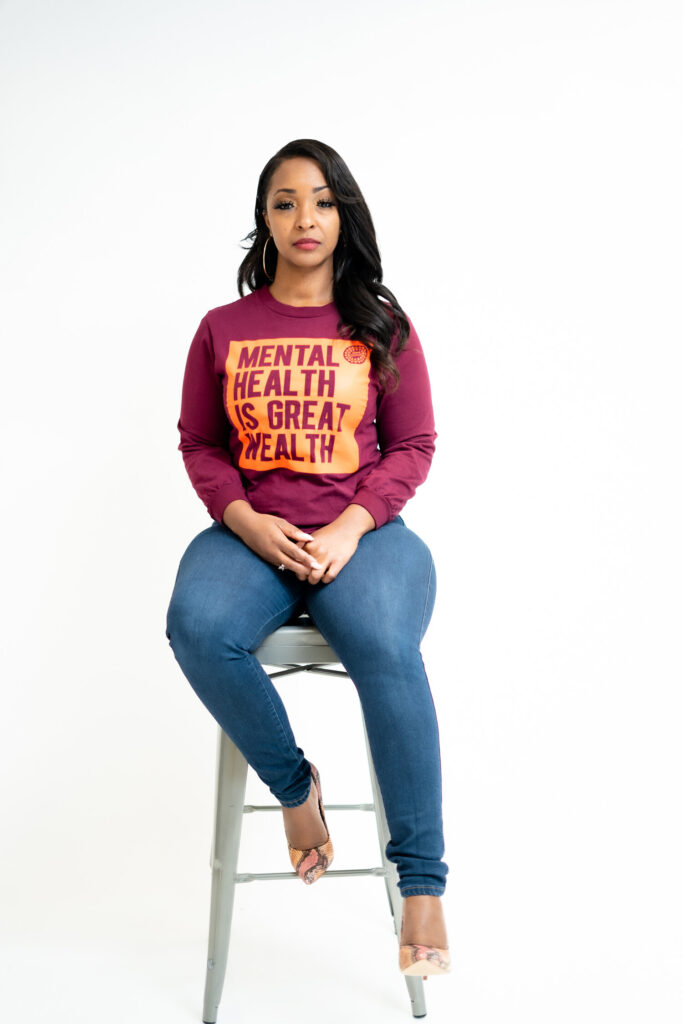
Interviewer:
Okay. So anytime before that, did you have any times where you might’ve dealt with anxiety before that At younger age?
Interviewee:
Before that age? I had dealt with depression, but not anxiety.
Interviewer:
Okay. May I ask what caused the depression?
Interviewee:
So depression, the earliest instance of depression that I can remember is when my mother took me and moved me to California away from my grandmother and my dad, and all my siblings. And that was very traumatic to me because there was not a heads up. There was no explanation as to why is what I know now was more so, my mother trying to escape her trauma. And so taking me away was her way of getting away from all the things that were bothering her.
As a young kid, I think I was maybe 11 at the time, uprooting me and moving me to a new state out of it was very traumatic for me. I spent a lot of days crying and being sad and wishing that I could come back home. It was my first time having suicidal thoughts where I just literally was thinking like, I don’t want to be here anymore. So that was my first experience with mental illness.
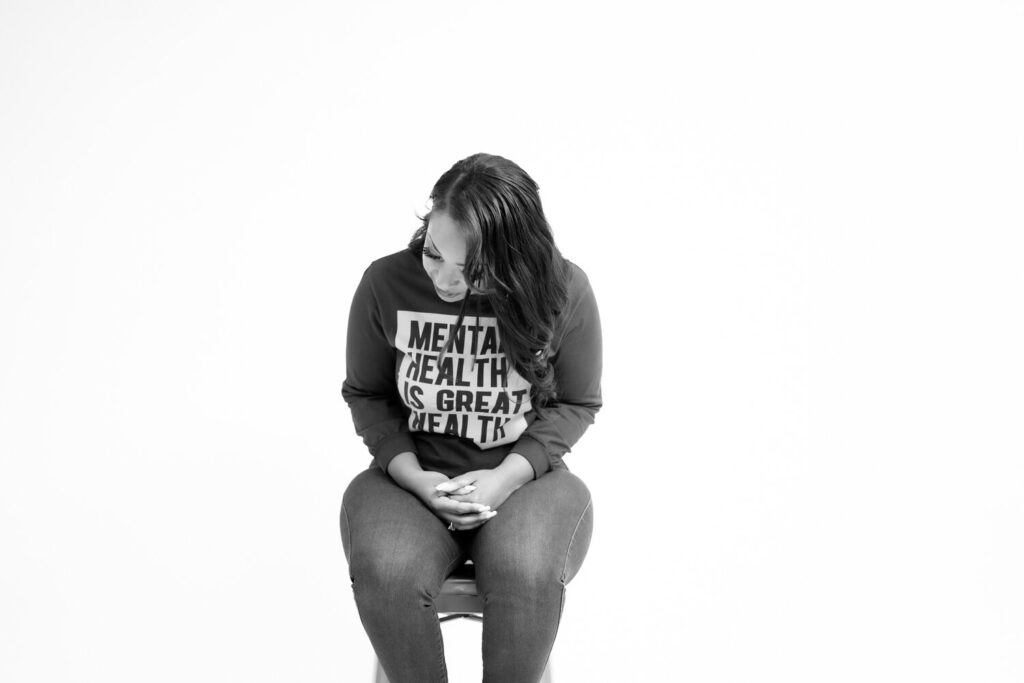
Interviewer:
Did you tell your parents, I mean, obviously your mom was dealing with her traumas, so did you let her know? Did you let an adult know? And if so, what was the response there? Because I know like in our community we can say something wrong. They’d be like, pray about it. Ain’t nothing wrong with you. So like, what was that like?
Interviewee:
I did not tell anybody about what I was experiencing. It may have been because I didn’t have a name for it. And I was able to identify what it was. So I knew that I was sad because I miss my granny and I wanted to go home. So I think for me, it wasn’t like depression as I understand it now is being sad, and nothing is wrong. I knew what was wrong with me. So it wasn’t a question of why I was sad. So I didn’t question it. I didn’t feel like I needed to talk to anybody about it. I just wanted to come back home.
Interviewer:
So how did you get out of the depression stage?
Interviewee:
My sister ended up moving to California with us. And so when she moved with my niece and my nephew that just brought me back to life. So that’s really what it was.
Interviewer:
So you had kind of depression from being separated from family, but then once you had that, the family kind of back together, it made you feel more whole in that piece?
Interviewee:
Yes.
What is separation anxiety?
Separation anxiety is when someone is afraid of being separated from a particular person, persons, or even a pet. While many people associate separation anxiety with children, adults can experience the condition as well. A person develops extreme anxiety as a result of the separation.
Separation anxiety is a disorder in which a child becomes excessively anxious when separated from parents.
Children are especially prone to separation anxiety during times of stress.
Separation anxiety differs from normal clinginess. Children with the disorder can’t think about anything but the present fear of separation. They may have nightmares or regular physical complaints. They may be reluctant to go to school or other places.
Treatment includes talk therapy and possibly anti-anxiety medication.
Common
More than 200,000 US cases per year
Sources: Mayo Clinic and others, google; medicalnewstoday.com
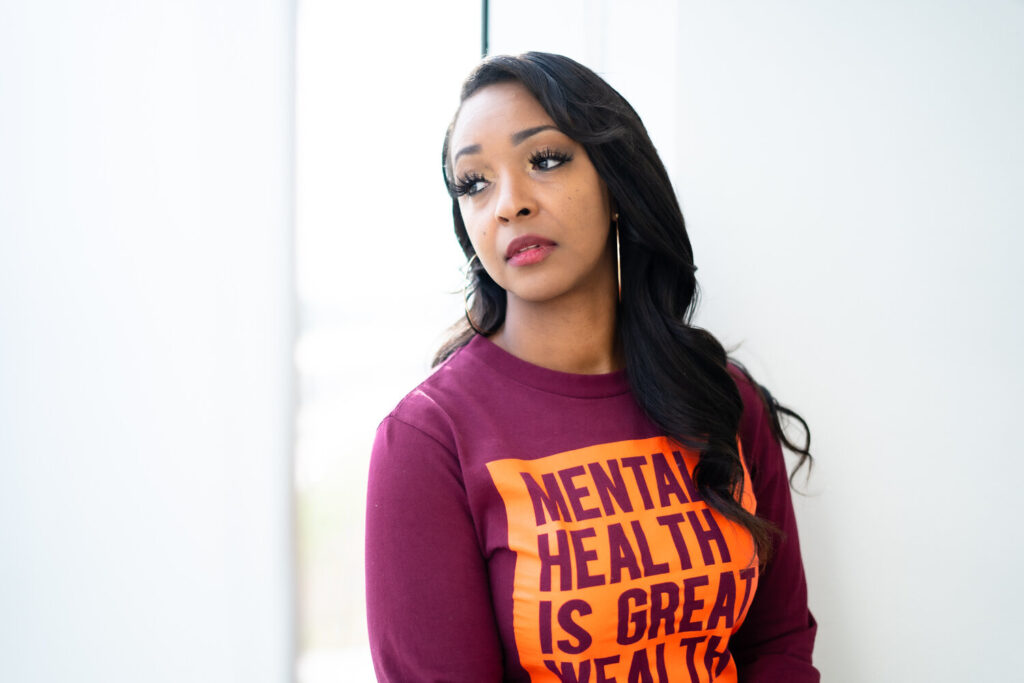
Interviewer:
Okay. And then with the anxiety that was later on and it was stemmed from death. So how did you end up coming from, like, always thinking that there was going to be an accident happening? Because I can just imagine how tense out would be to always constantly be in a state of thinking something’s going to happen. So how did that go about, and how long were you like in that state of constantly thinking something was going to happen
Interviewee:
Years! I went through the post-traumatic stress of seeing a loved one die for probably about eight to 10 years before I was able to actually, before I got to a place to where it wasn’t something that occurred regularly, like a weekly, monthly basis. And so I talked to a grief therapist who helps me get through that. And my grandmother ended up passing away tragically a few years after that. So that kind of compounded on.
Interviewer:
You’re close to her?
Interviewee:
Yes. Devastating loss for me. But I went to see a grief counselor because at that point it was now anxiety, depression, and grief, and it was too much. It was to the point where I was driving down the freeway. And I couldn’t see because I was crying so hard. And so I went to sit down and talk with the grief counselor. She suggested that I read the book, the shack which was a really good book to read. It was kind of a turning point in the way that I processed death. And I also started taking medications from my primary care physician. So I started taking Xanax, which was what she called to put the fire out. So the mattress is on fire and you need something to quickly put the fire out because I don’t like feeling like I have a heart attack, so I would try to naturally calm down. And so she gave me the Xanax capsules, so that’s what I would take. So I took Xanax for years and years and years and years and years. And then finally starting talking to a therapist to work out.
What is post-traumatic stress?
A disorder in which a person has difficulty recovering after experiencing or witnessing a terrifying event.
The condition may last months or years, with triggers that can bring back memories of the trauma accompanied by intense emotional and physical reactions.
Symptoms may include nightmares or unwanted memories of the trauma, avoidance of situations that bring back memories of the trauma, heightened reactions, anxiety, or depressed mood.
Treatment includes different types of trauma-focused psychotherapy as well as medications to manage symptoms.
Very common
More than 3 million US cases per year
Sources: Mayo Clinic; google
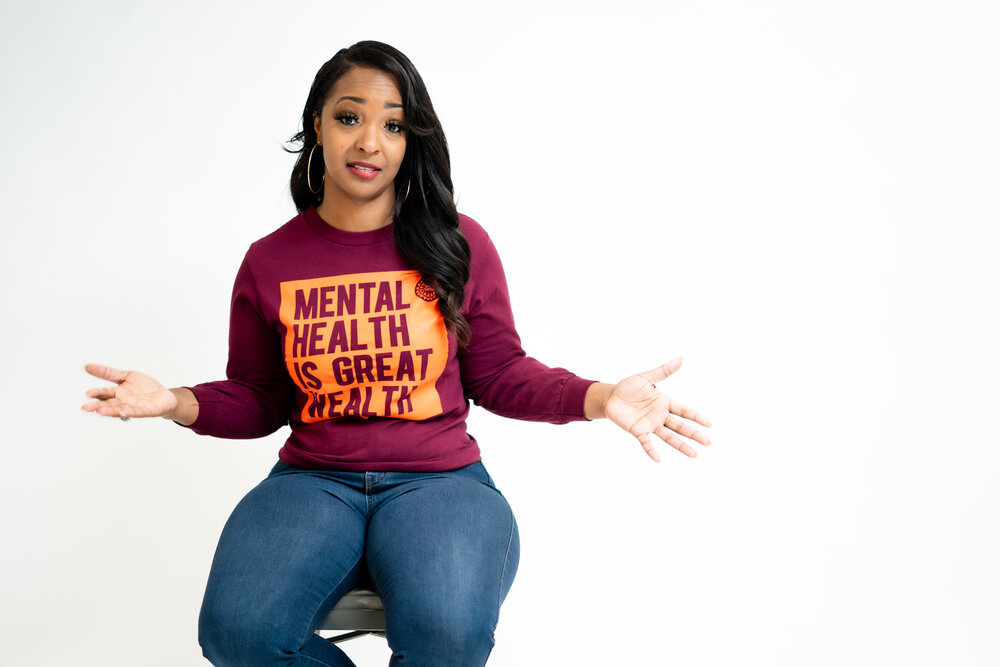
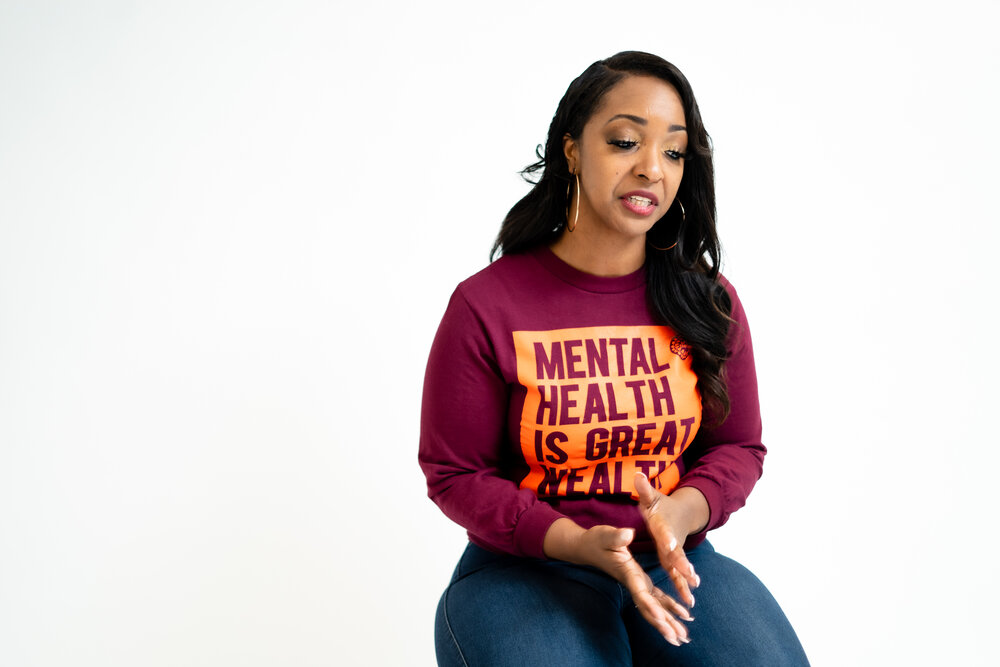
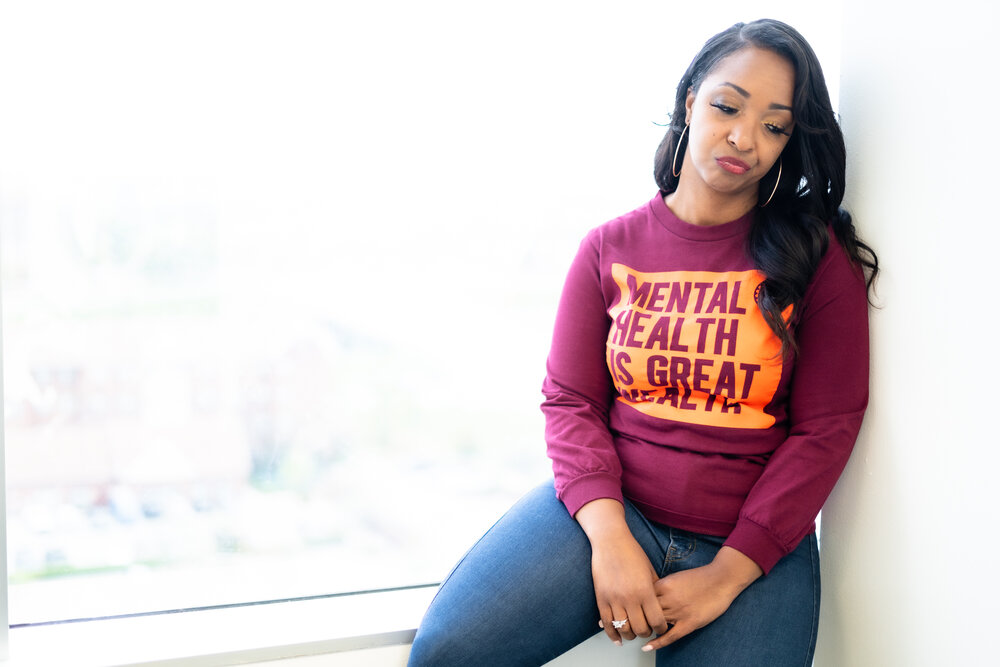
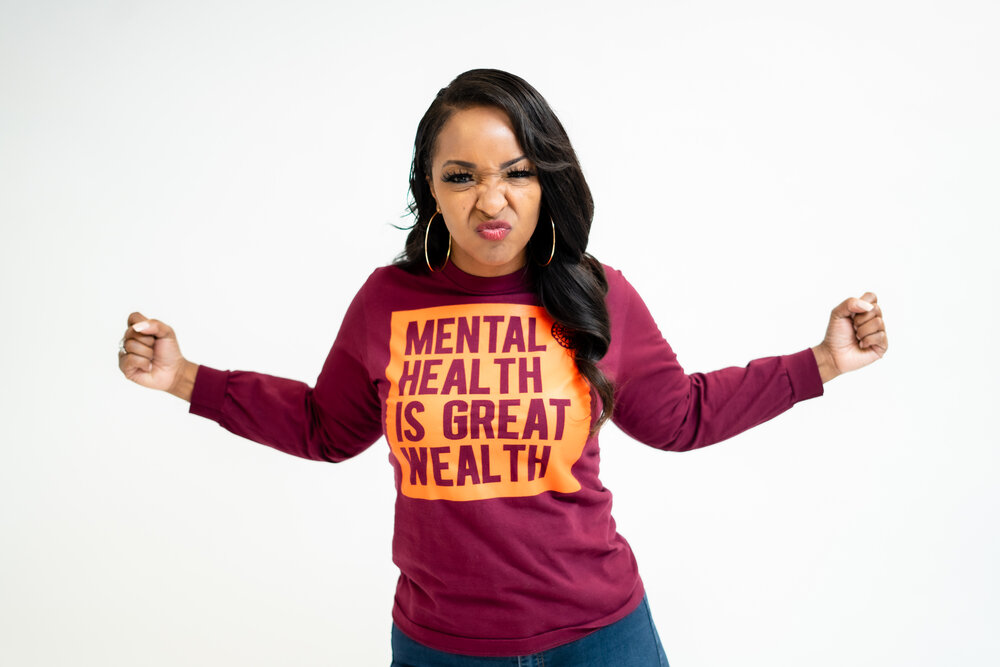
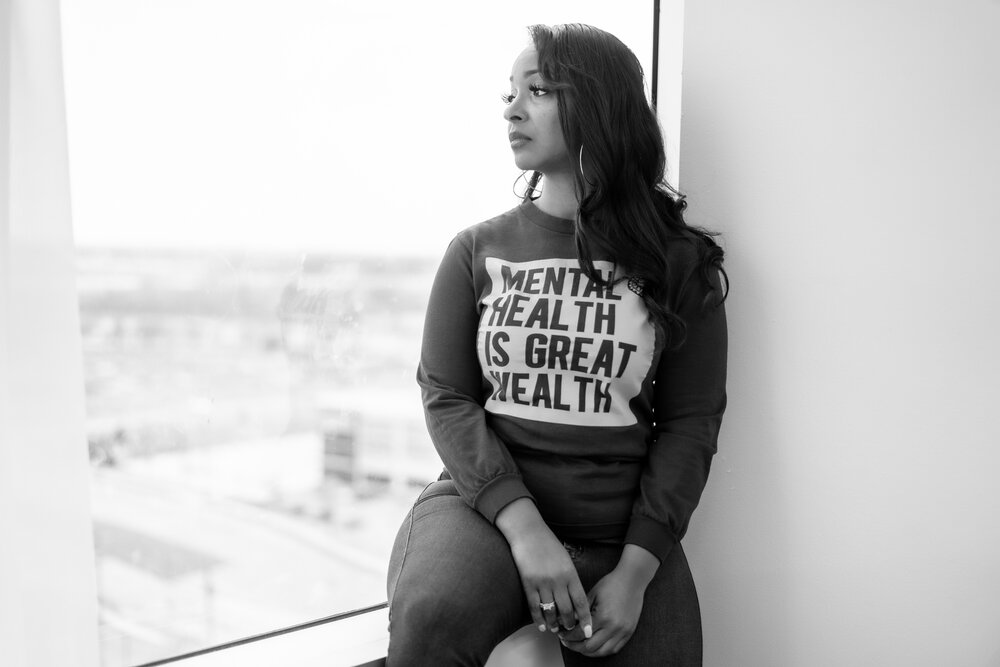
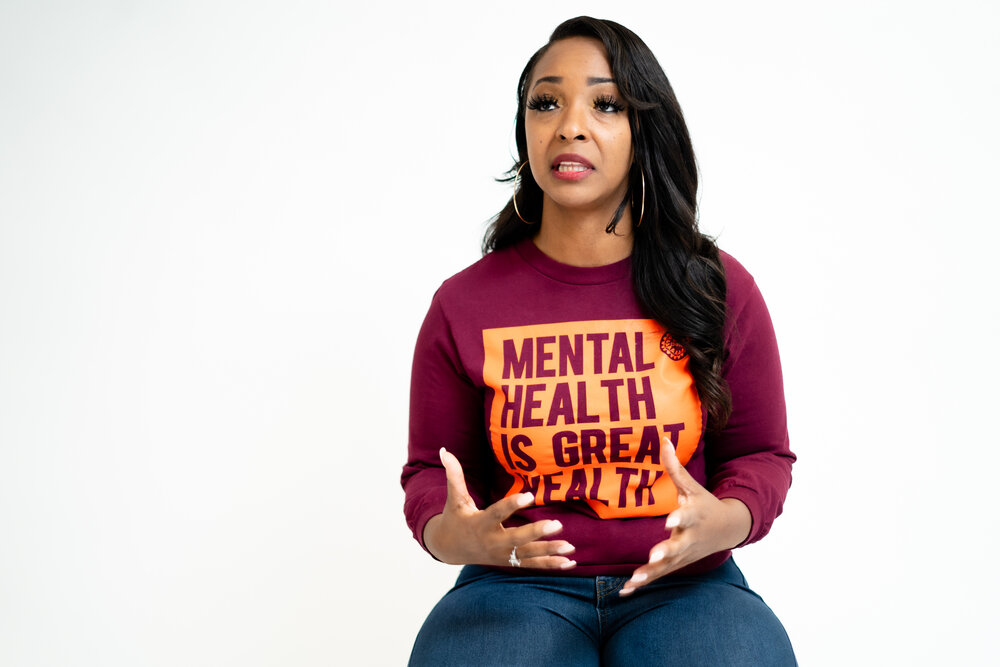
Interviewer:
So what do you have to say to people who are like, have thoughts about taking medication? I know that some people do need to have the medication for balancing. So what are your suggestions or recommendations for those who might need to take medicine, but don’t want to?
Interviewee:
Mental illness is real. It’s not imaginary. It’s not fake. It’s not a situation where you can just always pray about it and it’s going to go away. It’s real trauma. So many people have been dealing with PTSD, childhood trauma, like things that if you told people about it, they would be like, Oh my God. And so sometimes need something to help you with that chemical imbalance.
Don’t continue to suffer for long periods when there are things out there that you can take that can make your day better. Life is short. And so you have to find a way to be able to get through every single day. So I do recommend medication.
Don’t suffer alone!
Interviewee:
If you’re experiencing depression, that means that you’re still sad about something that happened in the past, that you can change that you’re still dealing with.
If you’re dealing with anxiety, then that means you’re stressing over the future, there is something that hasn’t occurred yet. Also, something that you can’t control. The goal of being mentally healthy is to learn how to be in the moment and how to have peace and how to heal from the trauma of the past.
Be in the moment and not stress so much over the future and just take life day by day. And that’s easier said than done. So I understand that. But that’s something that I try to tell people, but also, taking your meds if need be, or therapy, what works for you, enjoy nature by taking a walk, that may work for you.
Medication may work for you listening to music or whatever, but finding what works for you. And that is worth It for sure.
Make Relaxation a Priority!
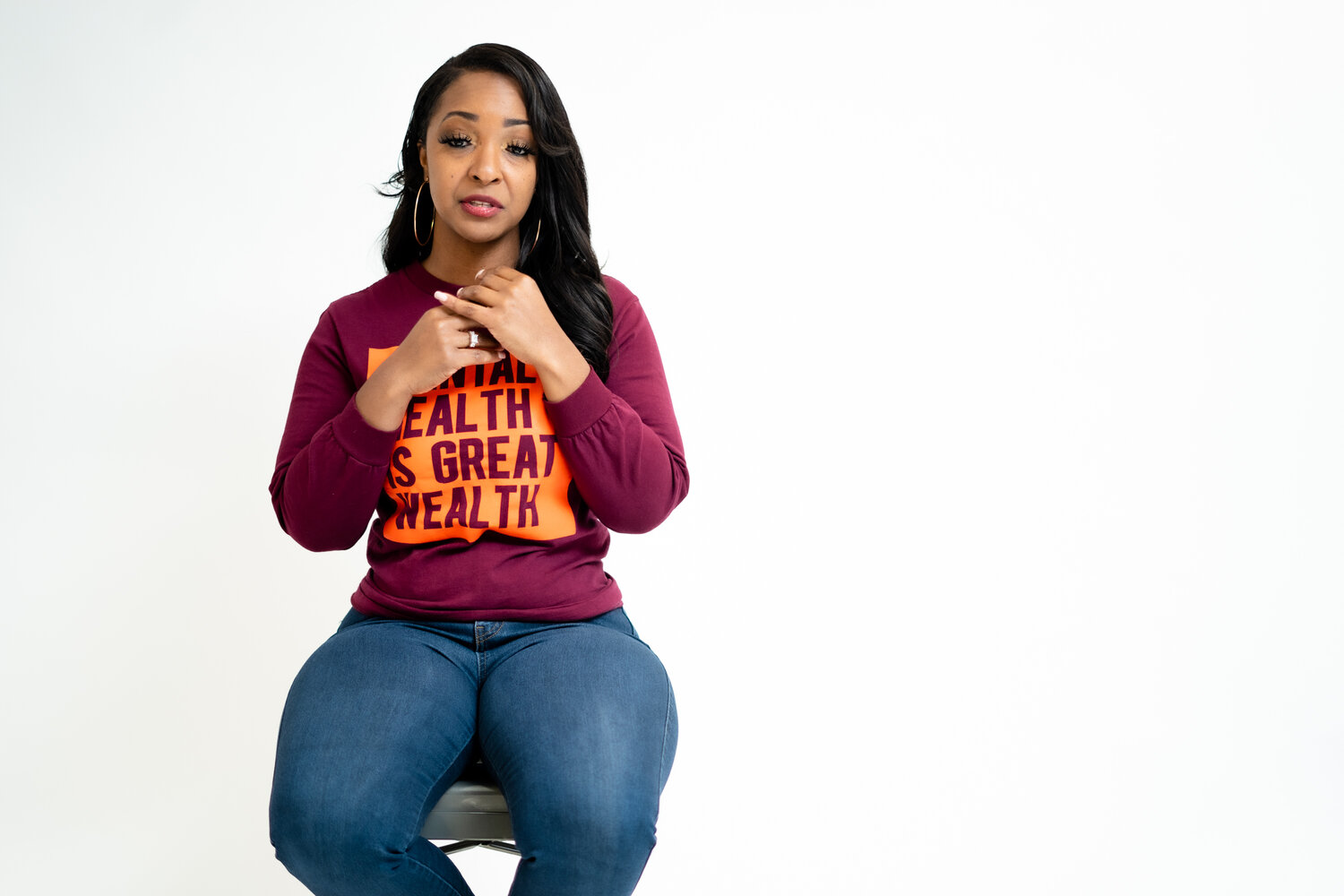
View comments
+ Leave a comment